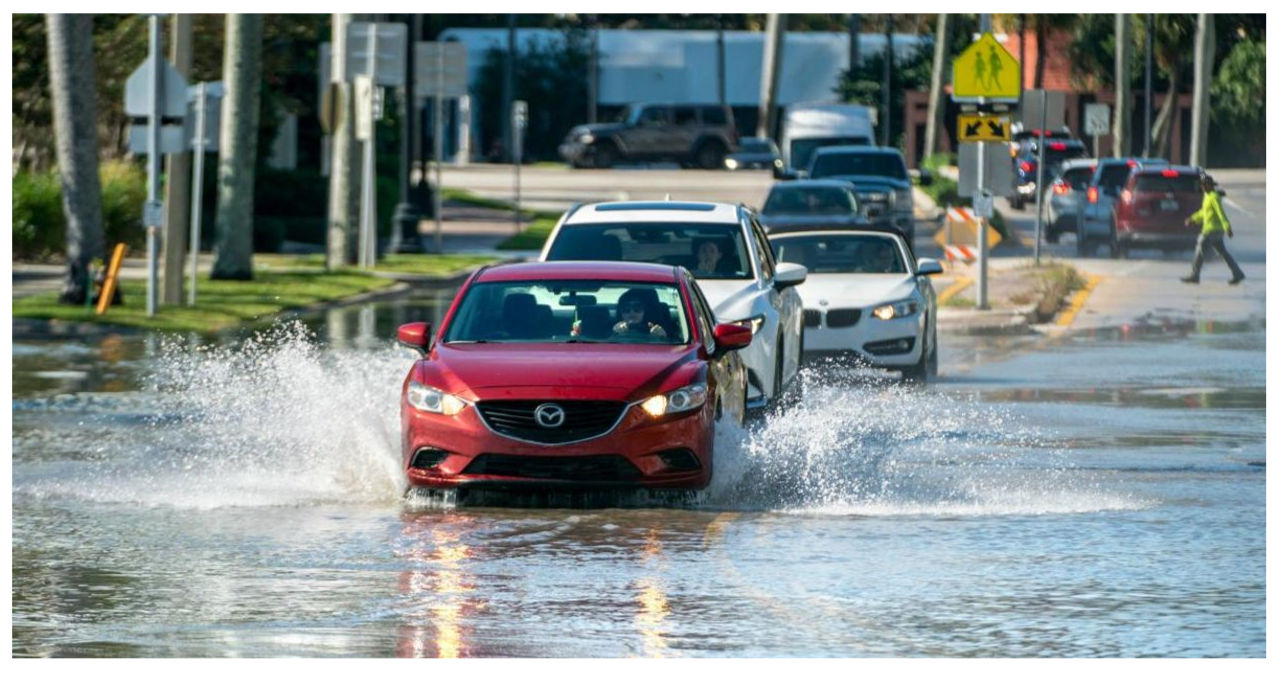Many property owners in Florida are familiar with the unsettling routine of property insurers increasing premiums to unaffordable rates or abruptly dropping customers. This issue is not limited to the Sunshine State alone. Regrettably, our elected officials in Washington have been unable to address this growing problem.
Extreme weather events driven by climate change are reshaping the actuarial landscape across the United States. From devastating wildfires in Arizona and Oregon to destructive tornadoes in Kansas and Oklahoma, and powerful hurricanes in North Carolina, Virginia, and Florida, the impact on policyholders is undeniable. It is high time for Congress to acknowledge the urgency of the situation and seriously consider the need for federal involvement in providing storm coverage.
The concept of the federal government overseeing stand-alone windstorm and other extreme-weather coverage is not a new idea. However, it is a concept that has lost favor and has been largely forgotten. Instead, the responsibility of assisting frustrated homeowners has been placed on the states, which has left consumers more vulnerable than ever to the whims of the insurance industry.
According to a recent study by the Consumer Federation of America, approximately one in 13 homeowners in the United States is currently without insurance. This number is projected to increase in the future. In the past, Florida, a state prone to hurricanes, was seen as a model for the insurance industry in terms of managing risks and allowing local residents to handle their own issues. However, the impact of climate change has altered this perspective. The insurance industry can only construct a limited number of metaphorical “walls” to protect against these risks.
Florida insurers need to address climate change without waiting for the 2024 storm season to arrive.
A growing number of American homeowners are grappling with the challenge of finding affordable property insurance. In several “high-risk” states, residents are being burdened with higher premiums and larger deductibles, and unfortunately, this is considered fortunate compared to others. Many homeowners receive non-renewal letters, which leave them with no choice but to seek coverage elsewhere or even consider going without property insurance entirely.
California is experiencing a wave of insurance providers withdrawing from the state as it grapples with an alarming number of wildfires, with a total of 137 occurring this year alone. In Arizona, Nevada, and Washington, policyholders are facing non-renewal notices and significant premium hikes due to the escalating wildfire risk. Meanwhile, North Carolina’s attempt to implement a 42% rate increase in homeowner insurance was deemed “excessive and unfairly discriminatory” by the state’s insurance commissioner. To address the issue of affordable coverage, Colorado established a state-backed “insurer of last resort” last year, following in the footsteps of Florida and several other states.
Florida no role model for coverage
Florida has experienced significant losses from storms over the years, which has deterred many major insurance companies from offering property insurance in the state. As a result, Citizens Property Insurance, along with several smaller firms, has taken their place. These smaller firms are more vulnerable to inflation, natural disasters, and higher reinsurance rates. Citizens, once considered the “insurer of last resort” in Florida, has now become the state’s largest carrier. Currently, it is facing challenges such as losing customers and redirecting them to more costly private companies, as well as undergoing a congressional investigation into its financial stability.
Furthermore, it is becoming increasingly clear that the measures taken by the state to address the issue of high insurance costs have been ineffective. The insurance industry has long blamed lawsuits and unethical practices for the soaring insurance rates in Florida. In response, Florida officials have taken steps to limit legal action against insurers who fail to address claims and have even provided financial support to help insurance firms cover their own re-insurance expenses.
The industry largely ignored the impact of climate change, and even if they had mentioned it, it probably would not have made a difference. Florida is set to repeal a law that has recognized climate change as a priority for energy policy decisions for the past 16 years. The bill is awaiting Governor Ron DeSantis’ signature and aims to remove the term “climate change” from many state laws. This decision is quite absurd, considering that Florida is considered to be highly susceptible to extreme weather events.
Homeowners in Florida and across the country are facing a concerning trend in property insurance rates. It is becoming increasingly clear that relying solely on state governments for a solution is not enough to ensure affordable coverage for homeowners. Federal intervention is crucial in addressing this issue, whether it involves improving data collection to accurately assess coverage needs or establishing a program similar to the National Flood Insurance. While Congress may have its fair share of challenging and complex issues to address, the matter of property insurance should not be put on hold until a climate disaster strikes. It is time for our representatives to take action and prioritize the needs of homeowners.
Climate change activates a new heat warning chart in Florida to notify individuals when the outdoor conditions could potentially become life-threatening.



